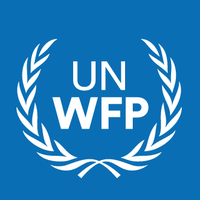The Escalating Storm: Israel's Military Campaign Against Hezbollah and Its Regional Implications
September 30, 2024, 3:41 pm

Location: United States, District of Columbia, Washington
Employees: 10001+
Founded date: 2000
The Middle East is a powder keg, and recent events have ignited the fuse. Israel's military actions against Hezbollah and the Houthis in Yemen signal a dramatic escalation in a long-standing conflict. The death of Hezbollah leader Sayyed Hassan Nasrallah has sent shockwaves through the region, prompting Israel to intensify its airstrikes in Lebanon and Yemen. This is not just a battle of arms; it is a struggle for influence, power, and survival.
Israel's airstrikes have become a relentless drumbeat. They target Hezbollah strongholds in southern Lebanon, the Bekaa Valley, and even the capital, Beirut. The death toll is staggering. Reports indicate that over a thousand Lebanese have died in the past two weeks, with many more wounded. Families are displaced, seeking refuge wherever they can find it. Streets once bustling with life now echo with the sounds of war.
The recent airstrikes in Yemen's Hodeidah port are a direct response to Houthi missile attacks on Israel. This is a dangerous game of chess, where each move could lead to a larger conflict. The Houthis, backed by Iran, have launched sporadic attacks on Israel, disrupting shipping routes in the Red Sea. Israel's military has made it clear: they will not stand idly by. They are hitting back hard, and the consequences are dire.
In Lebanon, the situation is equally grim. The Israeli military claims to have killed several senior Hezbollah leaders, including Nabil Kaouk. The group, once a formidable force, is now reeling from the loss of its leadership. The streets of Beirut are filled with mourners, grieving not just for their leaders but for a sense of stability that seems to be slipping away. Displaced families huddle together, clutching their meager belongings, determined to stay in their homeland despite the chaos surrounding them.
The international community watches with bated breath. The United States has urged for a diplomatic resolution, but the reality on the ground is far more complex. Iran, a key player in this conflict, has vowed to avenge Nasrallah's death. The Iranian leadership is in a precarious position, balancing the need to support its allies while avoiding direct confrontation with Israel. The stakes are high, and the potential for a wider conflict looms large.
Israel's military strategy appears to be twofold: eliminate Hezbollah's leadership and secure its northern borders. The Israeli government believes that by dismantling Hezbollah's command structure, it can create a buffer zone that will allow residents to return home safely. However, this approach is fraught with risks. The more Israel escalates its military actions, the more it risks drawing in Iran and its other proxies in the region.
The death of Nasrallah is a pivotal moment. He was not just a leader; he was a symbol of resistance for many in Lebanon and beyond. His death has opened a wound in the heart of the Lebanese people, as expressed by various voices in the country. The sentiment is palpable: the loss of a leader who embodied their struggle against perceived oppression is deeply felt. The question now is who will fill the void left by Nasrallah. The future of Hezbollah hangs in the balance.
As the conflict intensifies, the humanitarian crisis deepens. The UN World Food Programme has begun emergency operations to provide food for those affected. Families are left to fend for themselves, with many sleeping on benches and in makeshift shelters. The resilience of the Lebanese people is commendable, but their endurance is being tested. The ongoing violence threatens to erode the very fabric of society.
The potential for a ground invasion looms. Israel has mobilized reserve brigades, signaling that it is prepared for all options. Hezbollah has vowed to retaliate, promising to cease fire only when Israel's offensive in Gaza ends. This tit-for-tat escalation is a dangerous cycle, one that could spiral out of control.
Diplomatic efforts seem to be faltering. Lebanon's government is caught in a web of internal and external pressures. The call for a ceasefire is met with skepticism, as both sides remain entrenched in their positions. The international community's role is crucial, yet it appears hesitant to intervene decisively.
In this complex landscape, the underlying issues remain unresolved. The Israeli-Palestinian conflict continues to fester, fueling resentment and violence. Until a just settlement is reached, the cycle of conflict will persist. The recent military actions may yield short-term gains for Israel, but they do not address the root causes of the turmoil.
As the dust settles, one thing is clear: the storm is far from over. The Middle East remains a volatile region, where the echoes of war resonate deeply. The world watches, hoping for peace but bracing for more conflict. The future is uncertain, and the stakes have never been higher. In this game of power and survival, the consequences of each move could reshape the region for years to come.
Israel's airstrikes have become a relentless drumbeat. They target Hezbollah strongholds in southern Lebanon, the Bekaa Valley, and even the capital, Beirut. The death toll is staggering. Reports indicate that over a thousand Lebanese have died in the past two weeks, with many more wounded. Families are displaced, seeking refuge wherever they can find it. Streets once bustling with life now echo with the sounds of war.
The recent airstrikes in Yemen's Hodeidah port are a direct response to Houthi missile attacks on Israel. This is a dangerous game of chess, where each move could lead to a larger conflict. The Houthis, backed by Iran, have launched sporadic attacks on Israel, disrupting shipping routes in the Red Sea. Israel's military has made it clear: they will not stand idly by. They are hitting back hard, and the consequences are dire.
In Lebanon, the situation is equally grim. The Israeli military claims to have killed several senior Hezbollah leaders, including Nabil Kaouk. The group, once a formidable force, is now reeling from the loss of its leadership. The streets of Beirut are filled with mourners, grieving not just for their leaders but for a sense of stability that seems to be slipping away. Displaced families huddle together, clutching their meager belongings, determined to stay in their homeland despite the chaos surrounding them.
The international community watches with bated breath. The United States has urged for a diplomatic resolution, but the reality on the ground is far more complex. Iran, a key player in this conflict, has vowed to avenge Nasrallah's death. The Iranian leadership is in a precarious position, balancing the need to support its allies while avoiding direct confrontation with Israel. The stakes are high, and the potential for a wider conflict looms large.
Israel's military strategy appears to be twofold: eliminate Hezbollah's leadership and secure its northern borders. The Israeli government believes that by dismantling Hezbollah's command structure, it can create a buffer zone that will allow residents to return home safely. However, this approach is fraught with risks. The more Israel escalates its military actions, the more it risks drawing in Iran and its other proxies in the region.
The death of Nasrallah is a pivotal moment. He was not just a leader; he was a symbol of resistance for many in Lebanon and beyond. His death has opened a wound in the heart of the Lebanese people, as expressed by various voices in the country. The sentiment is palpable: the loss of a leader who embodied their struggle against perceived oppression is deeply felt. The question now is who will fill the void left by Nasrallah. The future of Hezbollah hangs in the balance.
As the conflict intensifies, the humanitarian crisis deepens. The UN World Food Programme has begun emergency operations to provide food for those affected. Families are left to fend for themselves, with many sleeping on benches and in makeshift shelters. The resilience of the Lebanese people is commendable, but their endurance is being tested. The ongoing violence threatens to erode the very fabric of society.
The potential for a ground invasion looms. Israel has mobilized reserve brigades, signaling that it is prepared for all options. Hezbollah has vowed to retaliate, promising to cease fire only when Israel's offensive in Gaza ends. This tit-for-tat escalation is a dangerous cycle, one that could spiral out of control.
Diplomatic efforts seem to be faltering. Lebanon's government is caught in a web of internal and external pressures. The call for a ceasefire is met with skepticism, as both sides remain entrenched in their positions. The international community's role is crucial, yet it appears hesitant to intervene decisively.
In this complex landscape, the underlying issues remain unresolved. The Israeli-Palestinian conflict continues to fester, fueling resentment and violence. Until a just settlement is reached, the cycle of conflict will persist. The recent military actions may yield short-term gains for Israel, but they do not address the root causes of the turmoil.
As the dust settles, one thing is clear: the storm is far from over. The Middle East remains a volatile region, where the echoes of war resonate deeply. The world watches, hoping for peace but bracing for more conflict. The future is uncertain, and the stakes have never been higher. In this game of power and survival, the consequences of each move could reshape the region for years to come.
